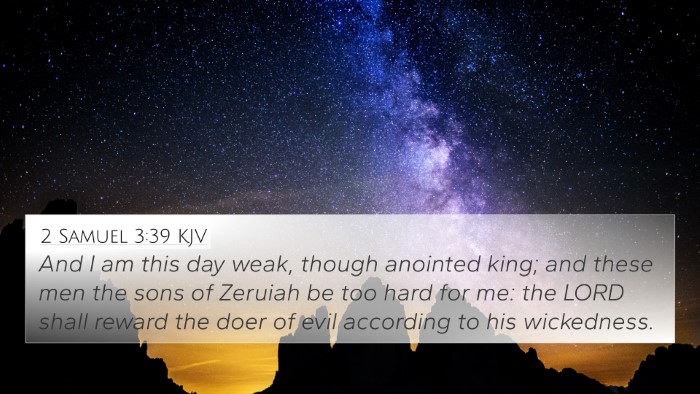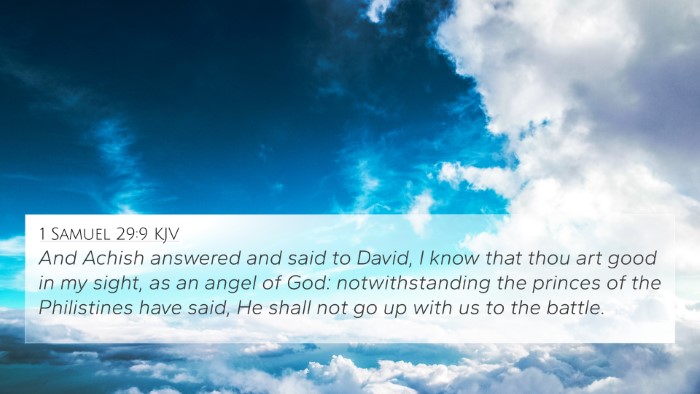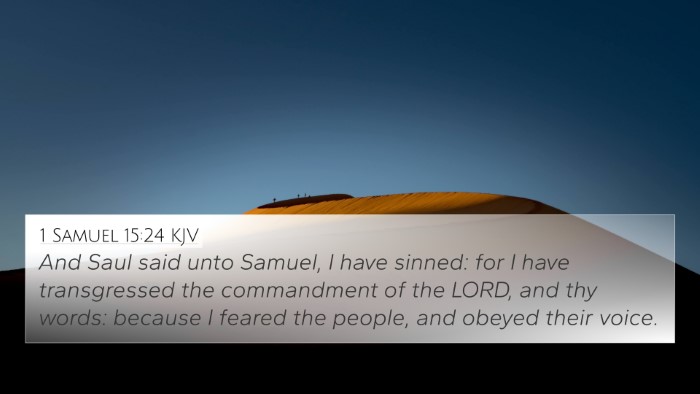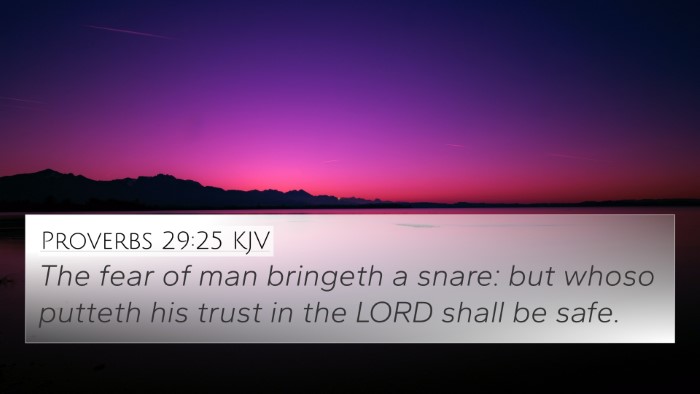Understanding Jeremiah 38:5
Bible Verse: Jeremiah 38:5
This verse portrays a significant moment during a period of great turmoil for the people of Judah. In Jeremiah 38:5, we see King Zedekiah replying to Jeremiah about the fate of the prophet, emphasizing the king's awareness of the disdain for Jeremiah's words. The king expresses his helplessness and fears regarding the consequences of Jeremiah's prophetic messages.
Summary of Commentary Insights
Through insights from public domain commentaries, we can discern the broader implications of this verse:
- Matthew Henry: Matthew Henry highlights the tension between the prophetic message and political authority. He emphasizes how the king is trapped in a dilemma, considering the influence of the people who were set against Jeremiah's prophecies.
- Albert Barnes: Barnes notes the significance of the king’s response, showcasing the fear that often accompanies the delivery of divine messages. He points out that Zedekiah's words illustrate the struggle of leaders in heeding God's counsel amidst popular opinion.
- Adam Clarke: Clarke expands on the dynamics of prophetic ministry, delving into the relationship between Jeremiah and King Zedekiah. He considers how this relationship is strained by the persistence of Jerusalem’s impending judgment.
Thematic Connections
The verse serves as a key point for understanding the ensuing dialogue between divine prophecy and human authority. The interplay of fear, awareness, and rejection is a recurring theme in the Bible. Below are several thematic connections:
- The Fear of God versus the Fear of Man: Zedekiah's fear of his subjects highlights the tension between divine authority and human expectation, linking to Proverbs 29:25, "The fear of man brings a snare."
- The Role of Prophets: Jeremiah’s fate prompts reflections on the broader role of prophets in times of crisis, reminiscent of other prophetic figures who faced adversity, such as Elijah in 1 Kings 19.
- Judgment and Hope: The prevailing theme of impending judgment seen in Jeremiah can be connected to the broader biblical narrative of hope in restoration, as seen in Jeremiah 29:11.
Bible Verse Cross-References
Jeremiah 38:5 can be cross-referenced with the following scriptural texts to gain deeper insights:
- Jeremiah 36:19: Here, we see the officials’ reactions to Jeremiah’s scroll, reflecting their hostility to his messages.
- Jeremiah 23:16: A caution about listening to false prophets, which touches upon the conflict Jeremiah faces.
- Matthew 10:28: Jesus speaks on fearing God over man, resonating with King Zedekiah's dilemma.
- Acts 4:19: The apostles assert that they must obey God rather than men, paralleling Jeremiah's situation.
- Hebrews 11:36-38: A recounting of prophets who suffered for their faith, echoing Jeremiah's plight.
- Micah 2:6: Similar interaction between prophetic messages and societal response.
- Isaiah 30:10: A description of how people often refuse to listen to God's true prophets.
Connecting Themes through Scripture
Linking these verses reminds us of the overarching narrative of struggle between divine messages and human governance, providing a richer understanding of Jeremiah 38:5 within the Biblical canon. Here are some points worth noting:
- The recurring theme of prophetic rejection is found in multiple instances across both the Old and New Testaments.
- The relationship between kings and prophets often reveals the human inclination toward self-preservation rather than divine obedience.
- Throughout scripture, we see examples of fear governing decisions, illuminating the conflicts that can arise in faith.
Tools and Methods for Bible Cross-Referencing
For those looking to explore these connections further, various tools can be leveraged:
- Bible Concordance: A tool that lists words and phrases in the Bible, providing reference to their occurrences. This is essential for identifying pertinent relationships between verses.
- Bible Cross-Reference Guide: These guides facilitate the understanding of themes and topics throughout scripture, illuminating comparative studies.
- Cross-Reference Bible Study: Engaging in study methods that emphasize inter-Biblical dialogue aids in discerning the richness of scriptural texts.
Concluding Thoughts
The key themes of prophetic integrity, human fear, and the interaction of divine authority with earthly power portrayed in Jeremiah 38:5 are integral to the study of biblical texts. As one examines these connections through cross-referencing, a richer understanding of scripture emerges, offering a deeper insight into the nature of God’s communication with humankind.








